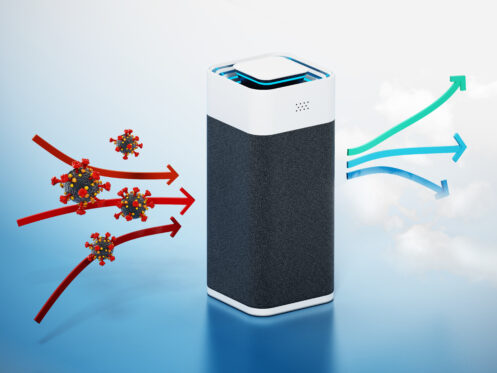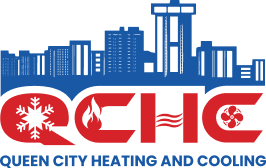While outdoor air pollution is a well-known environmental issue, indoor air pollution can be just as dangerous and may even be riskier. Understanding the dangers of poor indoor air quality and how you can improve it is essential to keeping you and your family safe.
Worsened Allergies and Asthma
Those who suffer from allergies and asthma can be particularly vulnerable to the effects of poor indoor air quality. Dust mites, mold, pet dander, and other common allergens in the air can intensify existing allergy and asthma symptoms, resulting in more frequent attacks.
Even those who do not normally suffer from these conditions could feel more congested or short of breath in a room with poor air quality. Irritating particles in the air can cause throat and nasal irritation, watery eyes, coughing fits, or difficulty breathing in an otherwise healthy individual.
Respiratory Diseases
Long-term exposure to poor air quality — particularly dust, volatile organic compounds (VOCs), and other airborne pollutants — can increase a person’s risk of developing various respiratory diseases, such as bronchitis or chronic obstructive pulmonary disease (COPD). Some forms of indoor air pollution can even increase the risk of lung cancer.
Infants and children are especially susceptible to the ill effects of poor air quality as their lungs are still developing. Over time, poor air quality can contribute to the development of asthma, respiratory infections, and other long-term problems that can last into adulthood.
Poor Sleep Quality
The quality of sleep you get at night can significantly impact your overall health and well-being. Poor air quality in the bedroom can make it difficult to breathe and remain comfortable throughout the night, leading to tossing and turning and a restless night’s sleep.
This causes fatigue during the day and can reduce your body’s ability to heal and recover from any physical or mental stressors. You may also experience a delayed reaction time and difficulty concentrating. Poor sleep quality over a long-term period can even increase your risk of cardiovascular and metabolic diseases.
Carbon Monoxide Poisoning
Carbon monoxide poisoning is a serious health threat when using gas-powered appliances such as furnaces, stoves, and water heaters. This odorless, colorless gas can seep into the air without your knowledge and have disastrous effects on your health.
Once inhaled, carbon monoxide can interfere with the body’s ability to absorb oxygen. This lack of oxygen can lead to headaches, lightheadedness, confusion, weakness, nausea, vomiting, and chest pain. Carbon monoxide poisoning can be fatal in higher concentrations, even in a single exposure. If you have gas appliances, it’s critical to have routine, professional maintenance to reduce this risk.
Developmental Problems
Exposure to poor air quality can have other indirect health effects, such as stunting cognitive development in young children. Studies have found that living in an area with higher levels of outdoor air pollution can reduce a child’s IQ by several points in adulthood. The effects of poor indoor air quality on cognitive development can be even more significant and take an even greater toll due to prolonged exposure to pollutants indoors.
Pregnant women should also be particularly mindful of the air quality in their homes, as poor air quality can put an unborn baby at risk for developmental problems. Certain pollutants can increase the risk of congenital disabilities, low birth weight, and other complications.
Improving Your Indoor Air Quality
Fortunately, there are steps you can take to improve the air quality in your home and protect yourself and your loved ones from potential health risks. Simple measures such as regularly replacing furnace filters, opening windows for ventilation, and using air purifiers can all make a big difference in your indoor air quality. Our technicians can install whole-home humidifiers, dehumidifiers, and air purifiers, including UV light systems.
It’s also important to be mindful of potential sources of pollution and take steps to minimize them. This includes running exhaust fans when cooking, avoiding smoking indoors, reducing the use of harsh chemicals like cleaning supplies, and eliminating mold or mildew growth as soon as possible.
Ultimately, though, the most effective way to address poor indoor air quality is to enlist the help of an HVAC professional. At Queen City Heating & Cooling, our team of experienced technicians can thoroughly inspect your home’s air quality and recommend the best solution for your needs. Contact us today and discover first-hand why countless homeowners in Nixa, MO, and the surrounding areas trust us for their cooling, heating, and indoor air quality needs.






